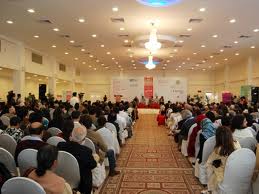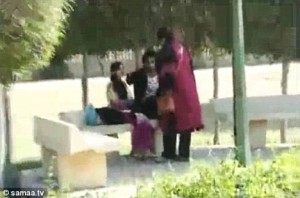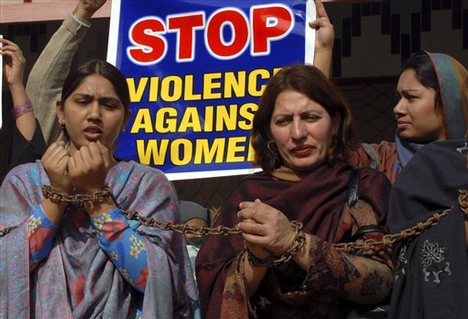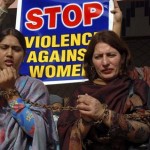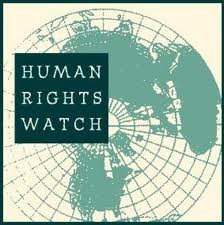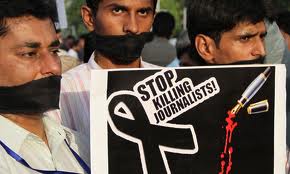RECENTLY, a report titled Pakistan flood emergency: Lessons from a continuing crisis was prepared by a collaborative group of over a dozen leading international and national humanitarian aid agencies.
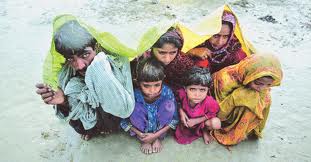
It is a deeply saddening reminder that some 2.5 million people affected by floods last year are still struggling to return to normal life. The miseries of these citizens are going unnoticed, having been overshadowed by the political turmoil in the country.
According to the provincial disaster management authority’s official website, no flood affectees are living in camps any more. This masks the fact that they are still in dire need of food, shelter, drinking water, sanitation facilities and medicine. Thousands remain hungry and shivering in the unprecedented cold wave. The numbers that find space on official websites do not reflect any of these very grim realities.
The hardship being suffered by those affected by the floods does not end when they evacuate the camps; in fact, they return to their places of residence with nothing with which to resume their lives. In the absence of a robust early recovery plan, those affected by disaster find themselves destitute. The social ramifications of this can be very extensive and perhaps worse than the disaster itself.
Following the floods, the official appeal for international aid was inexplicably delayed; meanwhile, the humanitarian community’s lukewarm response means that there was insufficient support for relief. The loss of 2.2 million acres of crop lands and an estimated 116,000 heads of cattle has shattered the local economy in flood-hit areas.Fe
Sowing during the Rabi season following the floods was scanty, as more than 10,000 square kilometres of land in the seven worst-hit districts remained inundated, making ploughing impossible. These districts included the most fertile and crop-intensive areas: Sanghar, Mirpurkhas, Tando Allahyar, Shaheed Benazirabad and Tando Mohammad Khan.
In a Feb 17 update, the Sindh Disaster Management Authority acknowledged that over 1,200 square kilometres remained inundated. Further compounding the situation, the provincial government was unable to provide the promised package of seed and fertiliser to farmers. Of the 70,000 tonnes of fertiliser that were promised, only 23,000 tonnes were mobilised; administrative inefficiency meant that merely 9,000 tonnes actually reached farmers.
President Asif Ali Zardari took charge of matters by communicating directly with the district administration, but the impact of this move was diluted by political manoeuvring at the local level. From relief aid to cash support, availing anything required political connections. This left the poor of the province even further marginalised. There is little doubt that this will result in these communities becoming even more food insecure. Last year, some reports found malnutrition levels amongst women and children in rural Sindh similar to those in famine-hit Africa. The government failed to mobilise the international community for sufficient resources.
Meanwhile, the economic turmoil in the Eurozone and America, the competing demands of other disaster-hit areas, the compromised credibility of the Pakistani government machinery, restrictions on the mobility of international aid workers and the ineffective media coverage resulted in sluggish inflows of aid. The UN launched a $357m appeal last September but till Feb 10, hardly half of this sum had been mobilised.
Considering that over nine million people were affected by the floods, the hoped-for sum amounted to $66 per person. This is a very modest figure when compared to the appeal for $97 per person after the floods of 2010 in Pakistan, or $481 per person after the Haiti earthquake of 2010.
What compounded the situation further in Pakistan was the fact that key sectors of humanitarian response remained anaemic, which kept thousands of flood-affected people in limbo for months on end. According to a report by the UN office for the Coordination of Humanitarian Affairs (UNOCHA), the most under-resourced sectors are water sanitation and hygiene where 80 per cent of the needs remain unmet. These are followed by health, shelter and food security, where over 50 per cents of the people’s needs are unfulfilled.
Meanwhile, as most of the promises made by the government have yet to be kept, a significant amount of the sum earmarked for those affected by the 2010 floods have been diverted to other areas by the Sindh government. Of the sum allocated for the rehabilitation of flood-hit areas and communities by the Provincial Annual Development Plan, Rs8bn have been diverted to the development fund through elected representatives.
The government seems to be revisiting its priorities as an election year looms. The provincial government has chopped off some Rs4bn allocated for the construction of 40,000 houses and the provision of basic amenities in 200 flood-affected villages. This sum is now to be spent on schemes identified by elected representatives.
Such willful disregard for the plight of the flood-affected shows a lack of political commitment on the part of the provincial government. And that further hinders assistance by the international humanitarian community. The vacuum created in the absence of active governmental and international aid is being filled by faith-based groups. The penetration of extremist elements under the guise of humanitarian work is being under-estimated, and could hurt the relatively liberal social fabric that exists in Sindh.
The monsoon season is again just a few months away. Even a moderate shock this year would destroy the disaster management apparatus and ailing provincial economy that are already in a shambles. Disaster risk reduction and preparedness should be the top priority of the government, aid agencies and civil society. We need to develop early warning systems and emergency evacuation plans, repair infrastructure and start planning; the trajectory of the past year’s failures needs to be altered.
The writer is the chief executive of Strengthening Participatory Organisation.nmemon@spopk.org


